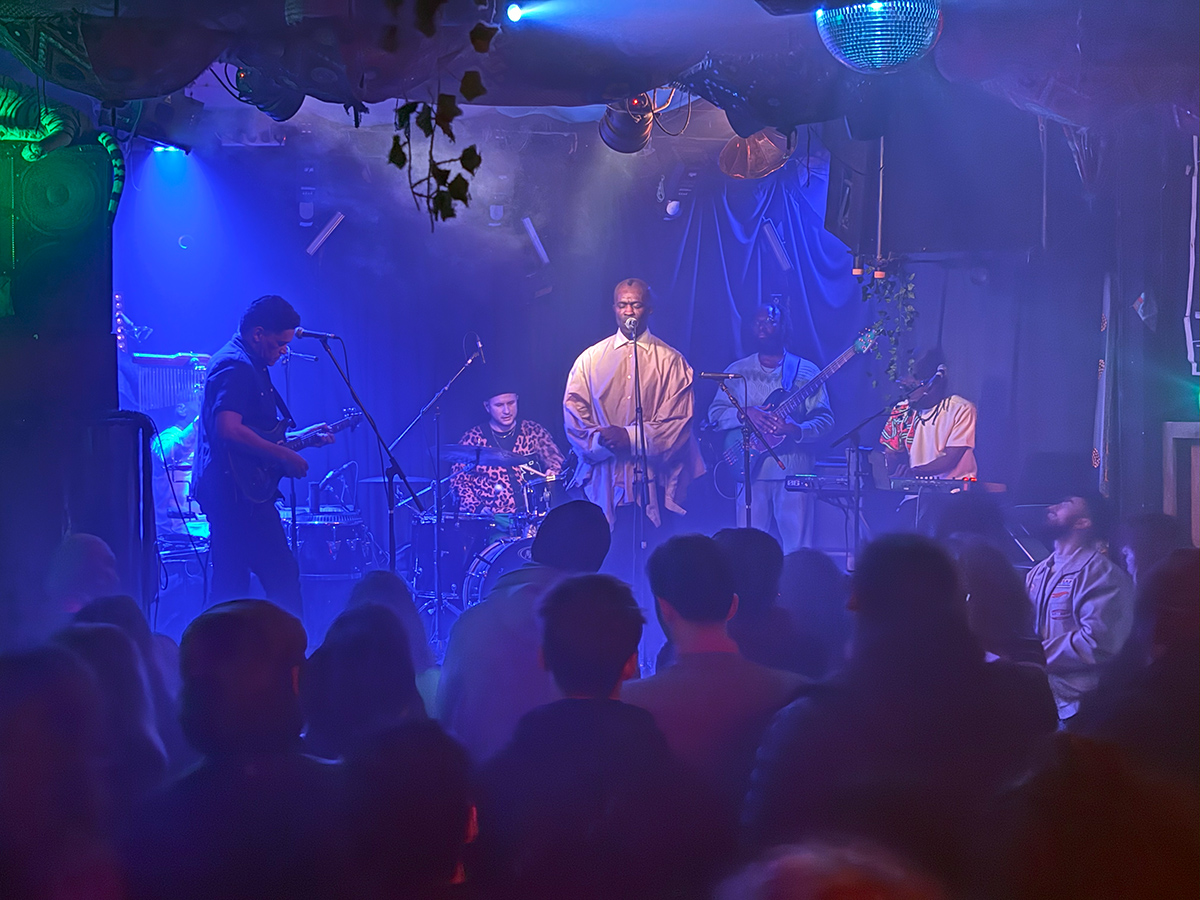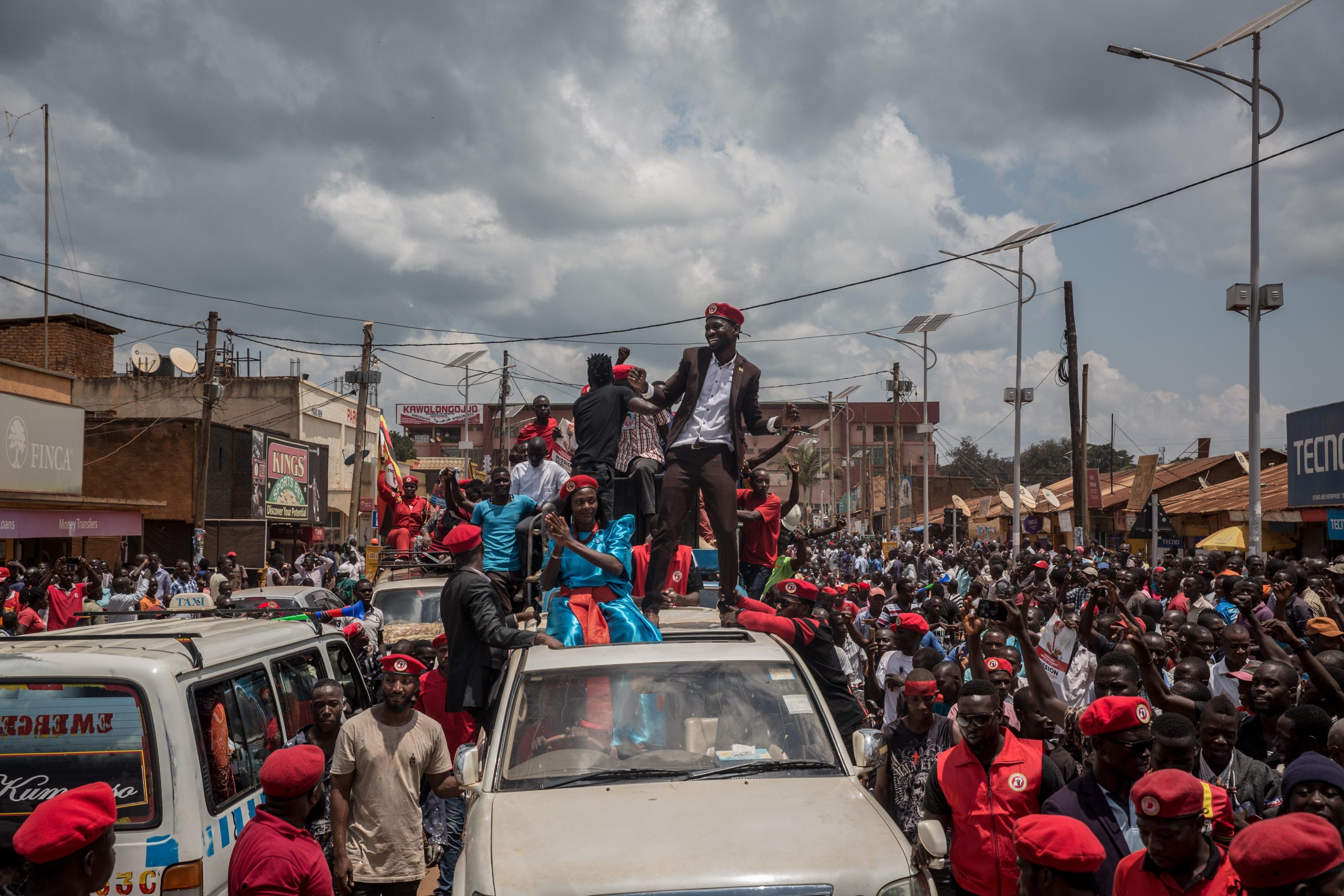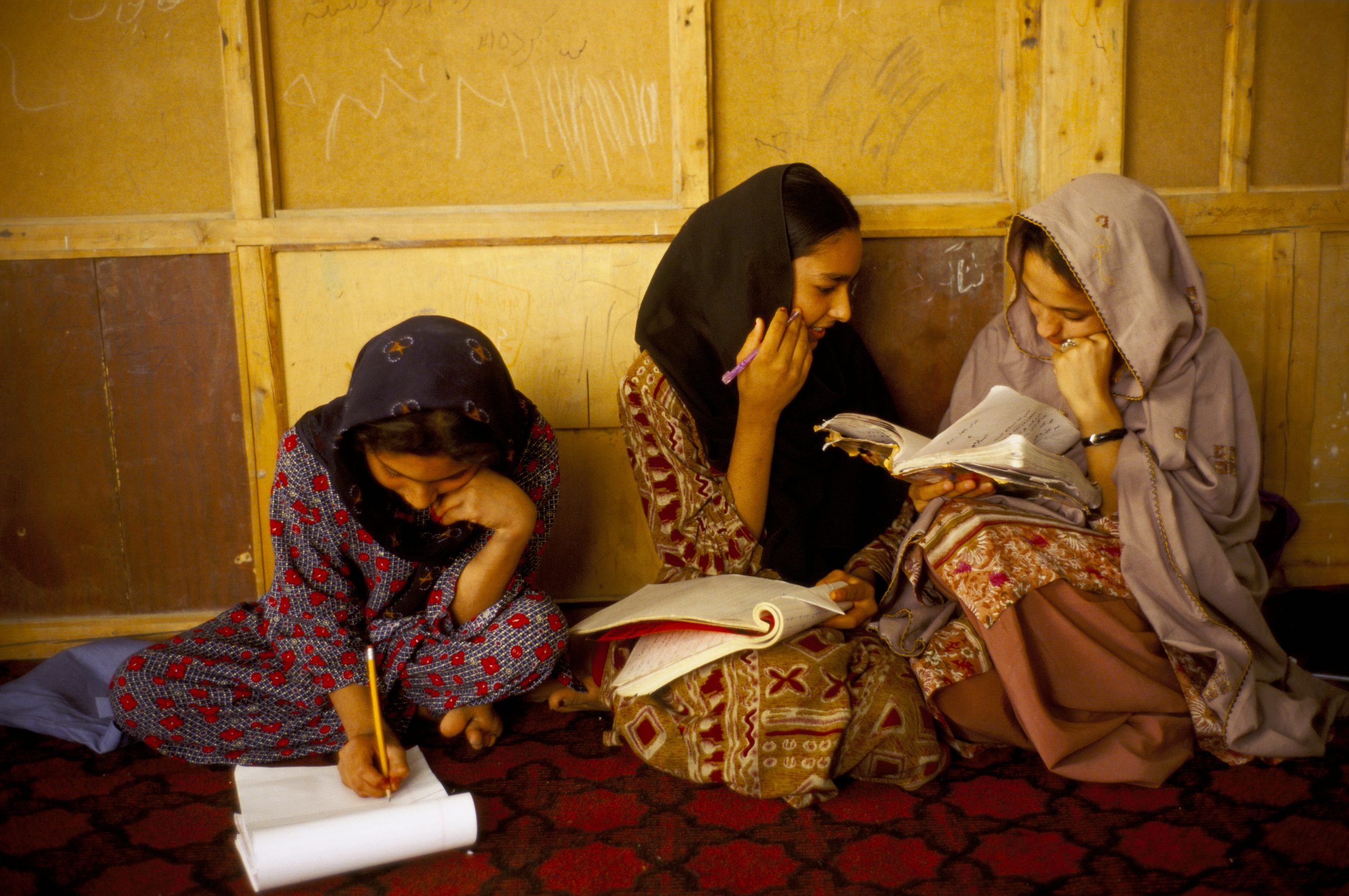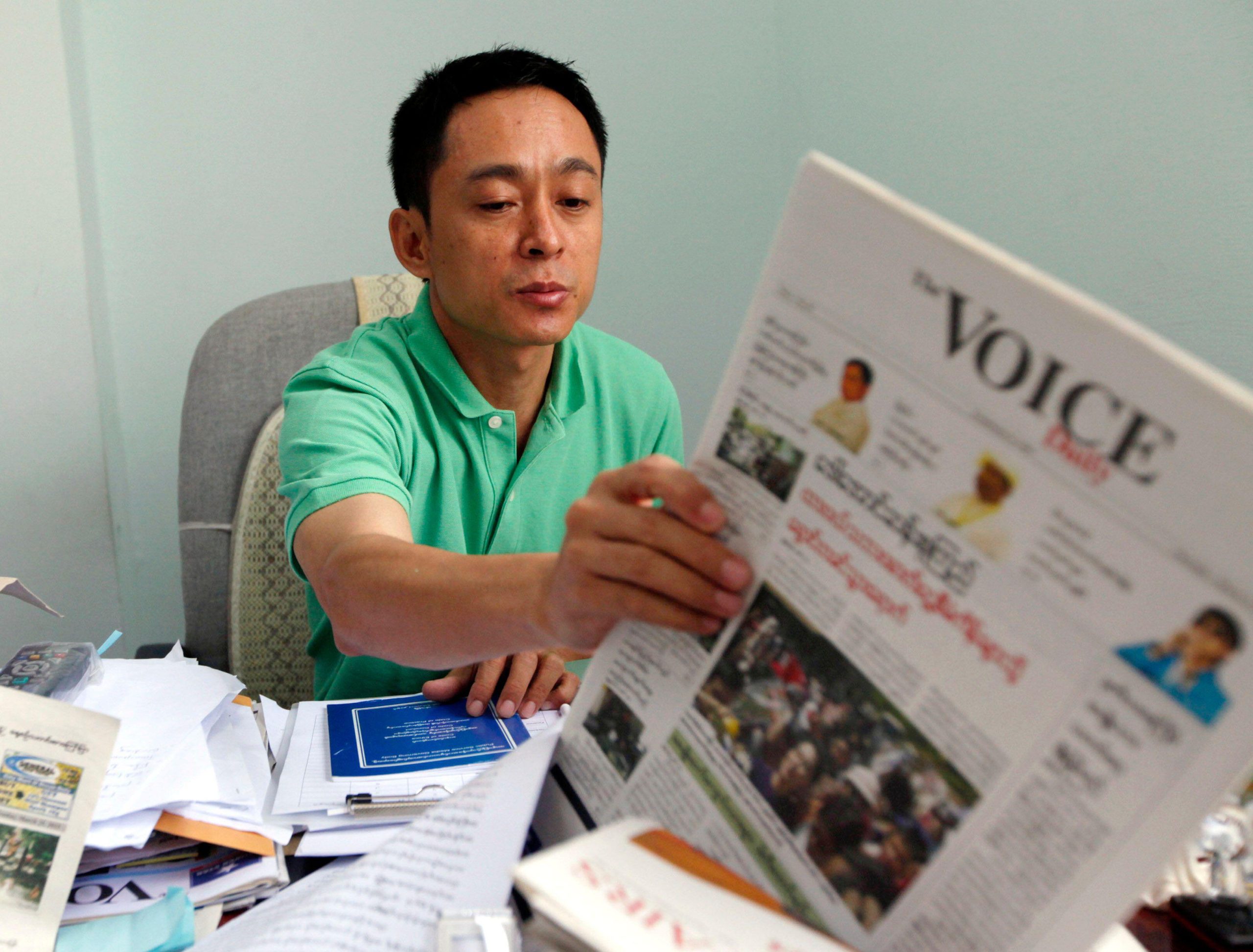September is a resonant time in Egyptian politics. It was then, 26 years ago, that an angry Anwar al Sadat – Egypt’s then president – sent over 1,500 journalists, intellectuals and politicians from across the political spectrum to jail without trial, and fired a host of others from their jobs, for what he believed was their plotting to overthrow his regime. Less than a month later – 6 October, 1981- senior military officers assassinated Sadat during a military parade. His deputy, Hosni Mubarak, took office in a peaceful and constitutional process and has remained in power since then.
More than a quarter of a century later, the shadow of 1981 is not as distant as it should be with 11 journalists given custodial sentences for offending the president and his son.
Of the 11, five are chief editors, including the fiery and outspoken Ibrahim Eissa of Al Dostour, Wael el Ibrashi of Sawt Al Umma, Adel Hammouda of Al Fagr and Abdel Halim Qandil, the former editor of Al Karam. All were sentenced on 13 September to one year in prison, fined LE20,000 ($3,636) and granted bail for a further LE10,000 ($1,818) pending appeal. Their crime? ‘Libelling’ senior figures in the ruling National Democratic Party (NDP), including President Hosni Mubarak, his son Assistant Secretary-General Gamal Mubarak and Prime Minister Ahmed Nazif. Less than two weeks later, on 24 September, Anwar al Hawari, editor of the opposition party mouthpiece Al Wafd, and two other journalists were sentenced to two years in jail for misquoting the justice minister.
The five editors were sentenced under Article 188 of the Egyptian Penal Code which stipulates that anyone who ‘publishes false news, statements or rumours likely to disturb public order’ can face a one-year prison sentence and a fine that does not exceed $3,636.
As the press community was absorbing the shockwaves triggered by these sentences, the state security prosecutor announced that Al Dostour’s Ibrahim Eissa will face yet another trial on 1 October on charges of publishing false information concerning Mubarak’s health and – therefore – undermining national security. A few days ahead of that trial, the government news agency MENA reported that Eissa was to face a state security emergency court, whose sentences are final and cannot be appealed. While outrage was the common sentiment amongst the vast majority of journalists who assembled at the Press Syndicate to discuss ways to respond to these developments, pro-government newspapers pursued their scathing attack on the independent press’s ‘insolence’ for daring to criticize the president and his son. On his part, the president was quoted as saying he is ‘all for a free press’ but that journalists should abide by ‘a code of ethics’.
What Mubarak actually meant was he is all for a free press as long as it does not refer to him, his family, and controversial issues such as the presidential succession, among a long list of ‘red lines’.
It is this kind of conditional freedom that governs every aspect of political life in this country. On the surface, Egypt appears to enjoy a level of democracy unmatched in other Arab countries such as Saudi Arabia, Syria and Libya. We have 24 licensed political parties (including some opposition), independent and opposition newspapers, parliamentary and presidential elections, workers strikes and street demonstrations.
But since Sadat’s assassination in 1981, Egypt has lived under a strict Emergency Law which, over the years, cauterised the security apparatus and expanded its mandate beyond its executive role.
There are currently at least 16,000 political detainees in Egyptian prisons being held without trial, cases of police torture in prisons and police stations are common news, hundreds of Muslim Brotherhood members – the largest parliamentary opposition bloc – have been detained and 40 of their leaders – including university professors and businessmen – are now being tried before a military court for charges of money laundering and terrorism. On 4 September, the authorities shut down a human rights organisation for receiving foreign funding without government approval. And on 1 July, an administrative court dismissed the appeals of 12 unlicensed parties seeking legal recognition. Last March, the authorities held a referendum on constitutional amendments that entrenched Mubarak’s ruling party’s grip on power and was tailored to exclude the largest opposition group, the Muslim Brotherhood, from legal political participation. The amendments also made legal to hold elections without independent judicial supervision.
It is in such a climate that Egyptian journalists operate. Both the penal code and the press law are rife with articles that jail journalists for expressing their views under vague phrases such as ‘undermining national security’ or ‘spreading false rumours’. So while the number of privately owned and independent newspapers increased significantly over the past three years, allowing for a freer press, custodial sentences for publishing offences rendered such freedom meaningless.
Before the government adopted a ‘reformist’ and ‘democratised’ discourse over the past three years –in response to US pressure at that time – press censorship was the norm and newspapers were shut down. Ibrahim Eissa’s Al Dostour had first published in the late 1990s and was shut down in 1998. The man himself was banned from writing for many years and all his attempts to publish other newspapers in Egypt failed. Similarly, the opposition Labour party’s mouthpiece Al Shaab was shut down in 2000 for its fearless anti-corruption campaigns and the party itself was frozen altogether.
When the authorities allowed Al Dostour’s comeback in 2005, among other private-owned newspapers, they weren’t prepared for what these papers were ready to publish. Thirsty for meaningful democracy and change, resentful of government-condoned (or sponsored) corruption and damaging economic and political policies, much of the private press became a main platform for dissent and a reflection of the public’s discontent. On the other side of the divide stood the state-owned or backed press which rapidly disengaged from the street and addressed the ruling elite instead. Reading these two types of newspapers eventually became an exercise in reading about two different Egypts.
The problem now is that the authorities seem convinced that the private press, especially Al Dostour, has more power than the state media machine in influencing public opinion. Otherwise, why would it drag its editor to court every few months in cases that always relate to the president? And why did the official news agency report plans to try him before an emergency court? The authorities later reversed that decision and referred him to a criminal court on 1 October under tight security measures, which adjourned the case to 24 October. Officially, Eissa’s crime is reporting on nation-wide rumours on the president’s health, or even death, in August. And in many ways what we’re witnessing is a crackdown on the independent press and an attempt to muzzle freedom of expression. This is why 18 independent newspapers have agreed not to publish on 7 October in protest.
But this isn’t solely about curbing freedom of expression. A quick glance at the bigger picture shows an insecure and aged regime battling for survival through a series of procedures that include silencing the press. If Eissa and his colleagues who face prison sentences end up in jail, they shouldn’t be viewed as only victims of a press massacre, but of a police state consolidating its position.




